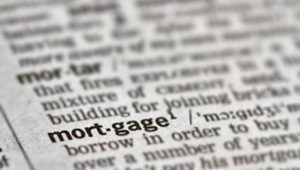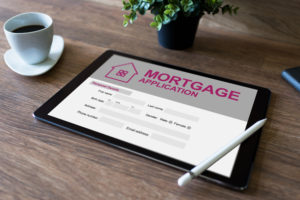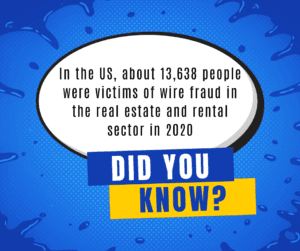Do you have mortgage questions? You aren’t alone.
Although mortgage loans are complex, it is critical to understand your options. Understanding the answers to your mortgage purchase and refinance questions will help you make informed decisions.
You may have several questions about mortgages during the home-buying or refinancing process. Here are the most common.
1) How do you qualify for a mortgage loan?
Meeting with a lender can be scary, especially if this is your first home purchase. But, this is, after all, the most important purchase you’ll ever make!
Take a deep breath and relax; there’s no need to be stressed. Instead, consider your initial appointment with a lender as a meeting to get to know each other. They’ll want to know some basic information about you and your financial status.
After that, there’s the paperwork! When your loan application is pre-approved, you’ll need to show proof of:
- Your income
- Your assets (Down payment funds)
- How much do you plan to put down on your home
A mortgage advisor will walk you through your mortgage options and answer all of your questions to make an informed decision. Find a new lender if they don’t. A mortgage is a significant financial commitment, and you should never sign up for anything you don’t fully comprehend.
Get in touch with a mortgage advisor today!
Your lender will most likely accept you for a larger loan than you desire. Keep in mind, though, that just because you qualify for a large loan doesn’t imply you can afford it!
We recommend speaking with GoodWay Mortgage if you’re ready to get prequalified for a mortgage loan.
2) Can you buy a home without a credit score?
This is one of the most often asked questions about mortgages, and the answer could surprise you.
You may not have enough credit reporting to establish a credit score when you meet with a lender if you’ve paid off all of your debt. That could make you feel uneasy. But don’t despair: you can still acquire a loan.
You’ll have to go through a manual underwriting process if you apply for a mortgage without a credit score. In addition, you’ll be requested to produce more paperwork for the underwriter to review if you choose manual underwriting. As a result, your loan application may take a bit longer, but buying a home without additional debt is well worth the wait!
Manual underwriting is not available from every lender. Do some preliminary research to identify those in your region which will, such as GoodWay Mortgage.
3) What’s the difference between pre-qualification and pre-approval?
To get prequalified, all you need is a quick talk with your lender about your income, assets, and down payment. However, suppose you wish to get pre-approved. In that case, your lender must check your financial details and submit your loan for preliminary underwriting. A pre-approval takes a little longer and requires more paperwork, but it carries a lot more weight.
Which is the superior option? Consider pre-qualification as a first step and pre-approval as a green light that you’re ready to start looking for a property. A pre-approval means you’re a serious buyer who’s lender has already started the loan process when sellers examine your offer.
4) How much home can you afford?
Purchasing “too much house” can result in your property becoming a liability rather than an asset. That’s why it’s crucial to know how much you can spend before meeting with a real estate agent to look at residences.
We propose that your monthly mortgage payment be no more than 35% of your gross monthly income. For example, if you earn $6,000 per month, your mortgage payment should be no more than $2,100 per month. You can afford a $400,000 property with a 10% down payment if you use our simple mortgage calculator.
You’ll have more leeway in your budget to afford the extra costs of owning a home. Such as repairs and maintenance while still saving for other financial goals, such as retirement, if you have a conservative monthly mortgage payment.
5) How much do I need for a down payment?
We recommend putting down at least 5% on a home, but 10% is even better because it eliminates the need for private mortgage insurance (PMI). PMI is a fee added to your monthly payment but does not contribute to your mortgage repayment.
It takes a lot of effort and patience to save a large down payment, but it’s well worth it. This is why:
- When you buy a house, you’ll have built-in equity.
- You’ll be able to borrow less, resulting in a cheaper monthly payment.
On the other hand, if you buy a house with little or no money down and the market drops, you may be stranded until home values rebound.
Why not get a jump start with a large down payment if your objective is to pay off your house quickly? That’s an excellent strategy!
6) How do you know which mortgage loan option is best for your situation?
It’s difficult to tell how each mortgage option will affect you in the long run when there are so many to choose from. The following are the most prevalent types of mortgage loans:
- Fixed-Rate Mortgage (Conventional)
- Federal Housing Administration (FHA)
- Department of Veterans Affairs (VA)
- Adjustable-Rate Mortgage (ARM)
A 15-year fixed-rate conventional loan is the best option. But what about a 30-year loan? Because a 30-year mortgage will cost you hundreds of dollars more in interest. That could imply a difference of more than $150,000 on a $300,000 loan!
Because a 15-year term has a higher monthly payment, you may need to change your home-buying budget to keep your mortgage payment at 35% of your monthly income or less.
However, there is good news: a 15-year mortgage pays off in 15 years. So why spend 30 years in debt when you can pay off your mortgage in half the time and save thousands of dollars in interest? That’s a huge victory!
7) How do interest rates affect mortgages?
High-interest rates result in larger monthly payments and a higher total amount of interest paid throughout the life of the loan. On the other hand, a low-interest rate saves you money in the short and long run.
Of all, just as you can’t time the stock market, timing your house purchase with the best interest rates is nearly impossible. According to the
, interest rates have been at historically low levels for the previous five years. The trend is expected to continue.
Although it may be challenging to arrange your home purchase to coincide with the lowest interest rates, there are steps you can take to lower your rate. A benefit of a 15-year fixed mortgage, for example, is that it has a lower interest rate than a 30-year fixed mortgage. Furthermore, a larger down payment might sometimes help you receive a better interest rate.
The money you pay in interest is never used to pay off your mortgage’s principal sum. That’s why getting a low-interest rate on your mortgage and then paying it off as quickly as possible is a good choice.
8) How do you lock in your interest rate?
Because mortgage interest rates fluctuate daily, securing your rate is critical to the mortgage process. Locking your interest rate ensures that you will pay the same rate for a set period, usually between 30 and 60 days.
Once your initial loan is authorized, you can lock in your interest rate in most circumstances. On the other hand, most purchasers wait until they have discovered a home they want to buy and are formally under contract.
As we mentioned before, mortgage interest rates fluctuate, and there’s no way to predict when they’ll rise or fall. You have no idea what the future holds for you. No one can accomplish it. So don’t waste time attempting to time the market; instead, rely on the knowledge of your lender. Believe them if they claim now is a great time to lock in your rate.
To lock in your interest rate, some lenders demand a fee. Ask inquiries upfront to get a sense of what to expect.
9) What are mortgage (discount/origination) points?
Mortgage points, also known as discount or origination points, are a technique to save money on your mortgage by prepaying interest.
One percent of your loan amount is equal to one mortgage point. That means that if you take out a $400,000 loan with two discount points, you’ll end up paying $8,000. In most circumstances, a point can cut your interest rate by one-eighth to one-quarter percent.
Because of how long it takes to break even on discount points, we don’t suggest them. Most of the time, you’ll sell your house or even pay it off before recouping the points you spent upfront. So forgo the discount points and concentrate on putting as much money down as possible.
10) What does your monthly mortgage payment include?
So, what happens when you make your monthly mortgage payment? While it’s comforting to assume that the entire amount goes toward lowering your principal, your monthly payment goes toward a lot more.
The following is an example of a typical monthly mortgage payment:
- Principal
- Interest
- Homeowners insurance
- Property taxes
- Private mortgage insurance (PMI) -depending on your down payment. *You can get no a no PMI mortgage with 10% down.
If you want to pay more on your mortgage, make sure to state that any additional funds should be applied solely to the principal.
12) What is an escrow impound account, and how does it work?
Additional expenditures such as homeowner’s insurance and property taxes may be included in your mortgage payment. These annual costs are a necessary element of homeownership, and if you don’t pay them, the lender will lose money.
The monthly share of each of those accounts might be added to your mortgage payment by your lender. To ensure that such fees are paid on time, the money will be held in an escrow account administered by a third party.
13) Should I consider a refinance mortgage?
You should consider refinancing if:
- You can cut your interest rate enough to warrant the closing fees.
- You can convert an adjustable-rate mortgage to a fixed-rate mortgage by refinancing.
- You require cash to pay off debt or make home improvements.
Suppose you can’t save half a percent on your interest rate. In that case, refinancing is generally not worth it unless the lender is waiving or paying your closing costs.
Lowering your interest rate from 5% to 4% on a $400,000 mortgage might save you roughly $333 per month. That adds up to more than $20,000 over five years. Closing fees for a $400,000 loan averaged $3,000 on average. Is it worth paying $3,000 in closing expenses to save $20,000? Almost certainly!
Refinancing to a fixed-rate mortgage is almost always a good choice when it comes to adjustable-rate mortgages. An adjustable-rate mortgage can fluctuate, causing your monthly payment to change dramatically. So it would be best if you didn’t take that chance. Nevertheless, a fixed-rate mortgage is the best alternative, even if you must write a check for the closing fees.
Get a comprehensive refinance analysis from GoodWay Mortgage.
If you want to refinance, try to stick to a lower mortgage term, such as a 20 or 15-year mortgage. Remember that refinancing is meant to help you pay off your mortgage faster, not to keep you in debt longer!
You don’t have to refinance to acquire a shorter term if you already have a good interest rate on a 30-year fixed loan. It is, nevertheless, simple to make extra mortgage payments. Our mortgage payoff calculator can help you figure out how much more you’ll have to pay each month to reach your target.
14) After you’ve been pre-approved for a mortgage loan, what happens next?
Getting a mortgage pre-approval is only the first step. It’s time to start looking for your dream home once the financial components are in place. It’s one of the most exciting parts of the process, but it’s also one of the most stressful. That’s why working with a buyer’s agent is critical.
A buyer’s agent can assist you in locating a house, negotiating a contract, and closing on your new residence. What’s the best part? Working with a buyer’s agent is completely free! This is because, in most circumstances, the seller pays the agent’s compensation.
Why not team up with a real estate expert who can help you save time, stress, and money when it comes to buying a home? We can put you in touch with a local high-octane real estate agent who has earned our seal of approval.
15) How long does it take to close on a mortgage?
Currently, the average time to close on a home is roughly 40 days. Factors including the sort of loan you have, your financial situation, and the length of your contract can all affect how long it takes.
Our recommended mortgage team at GoodWay Mortgage averages 15 days to close.
16) What happens at the mortgage closing?
That new house will be yours after you close. You’ll sit down with the specialists involved in your real estate transaction at the closing and sign all of the legal documents necessary to transfer ownership of your new home. That’s a lot of fun!
As part of the closing procedure, you’ll also be liable for paying closing expenses. Closing expenses can range from 3–4% of the purchase price of your house. Three days before closing, you’ll receive a Closing Disclosure (CD) to let you know what to expect.
Talk to your real estate agent or lender if you have any questions about the closing process.
An experienced mortgage advisor can answer any mortgage questions you may have. Imagine looking back and knowing you made a wise house purchase that helped you achieve your financial goals ten years ago! Isn’t that going to be a relief?





